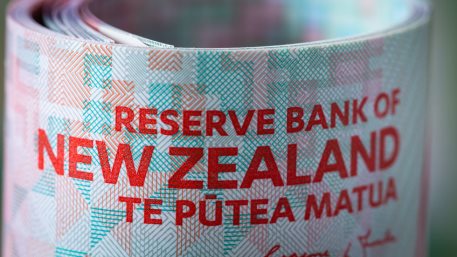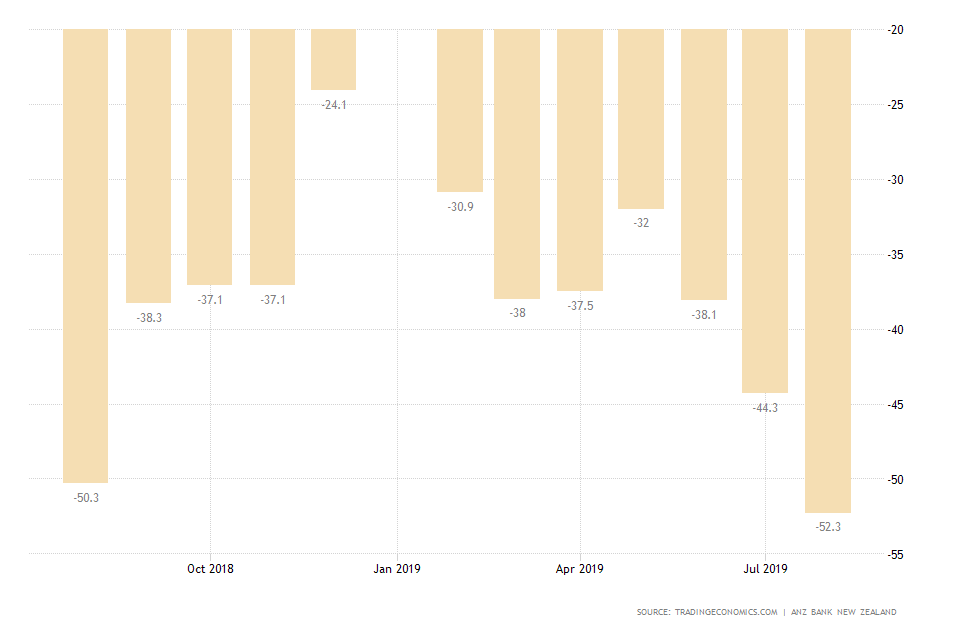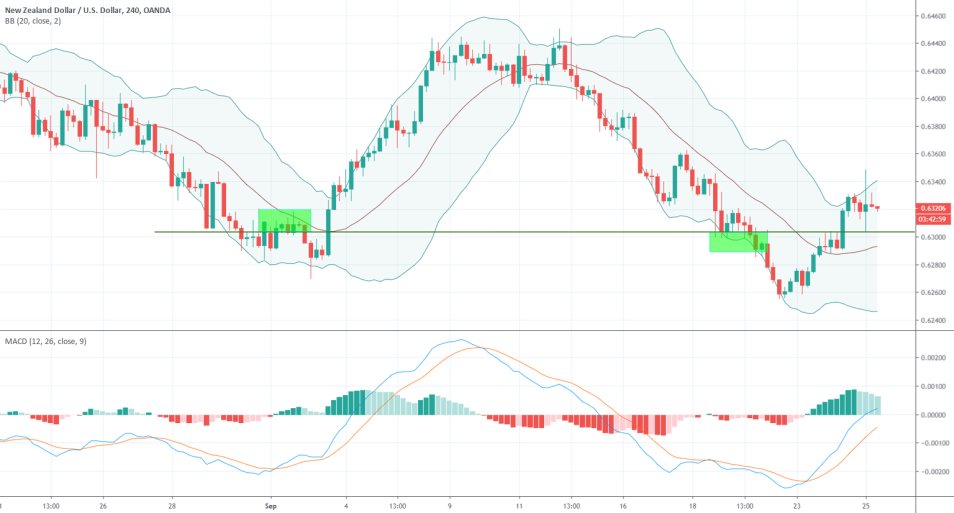
Early on Wednesday morning, the Monetary Policy Committee (MPC) of the Reserve Bank of Australia announced its decision to keep the interest rate unchanged at 1 per cent, which was anticipated by the vast majority of market analysts and economists worldwide.
Arguably the most insightful aspect of the monetary policy statement was the proclamation that the period of low interest in New Zealand might be extended for longer than previously expected.
The MPC commented on the subdued inflation in the country, which is close but below its two per cent target. Additionally, the labour market is performing well at the maximum sustainable level for the time being. The Committee commented on the overall economic situation in the country by stating that:
“The Monetary Policy Committee agreed that new information since the August Monetary Policy Statement did not warrant a significant change to the monetary policy outlook. […] Business confidence remains low in New Zealand, partly reflecting policy uncertainty and low profitability in some sectors, and is impacting investment decisions.” [source]
The business confidence index has been deteriorating consistently throughout 2019, mostly owing to the global trade uncertainty, which has become even more noticeable following the recent political developments in the Persian Gulf. It is because of these conditions that the global growth prospects remain muted; major central banks purposely keep their respective interest rates low and investors’ activity remains subdued.

“Global trade and other political tensions remain elevated and continue to subdue the global growth outlook, dampening demand for New Zealand’s goods and services. […] Global long-term interest rates remain near historically low levels, consistent with low expected inflation and growth rates into the future. Consequently, New Zealand interest rates can be expected to be low for longer.”
The admission of the possibility for prolongation of the low interest rates term in New Zealand is the most significant aspect of the monetary policy statement, which can have long-lasting consequences for the economy. Meanwhile, the market's initial reaction to the interest rate decision was more or less restrained, as investors are slowly absorbing the news.
The NZDUSD is currently trading at 0.63180 as the pair continues with its struggling to correct last week's major collapse when the price tumbled to levels last seen in September of 2015. The short-term bullish momentum is currently picking up, albeit at a moderate pace, and the price has already broken above a major resistance level at 0.63030. It is yet to be seen whether the market conviction is sufficient enough to support the formation of an entire bullish swing by the end of the week.

Trendsharks Premium
Gold is undergoing a correction, as investors take profits to offset losses from falling stock prices, impacting their margins. However, we anticipate a renewed wave of [...]
The Swiss stock market index is mirroring its global counterparts, such as Germany 40 and US100, experiencing a sharp decline following the announcement of new [...]
We’re analyzing the weekly chart to grasp the broader market trend. Over the past three years, the US30 index has surged by 17,000 points, often resembling a nearly straight [...]
Over the past week, the DAX has experienced a sharp decline, plunging by an astonishing 3,400 points. This downward movement is not isolated, as its international counterparts, such as the UK100 and US100, are also facing significant [...]
EURUSD recently formed a double top at 1.0930, signaling a potential trend reversal, and has since begun a correction. After a 600-pip rally since early March, a pullback at this stage is both expected and healthy. Given these conditions, we are placing a [...]
Since early March, EURJPY has surged nearly 1,000 pips, providing us with several excellent trading opportunities. However, as the rally matures, many early buyers are beginning to take profits, leading to a noticeable slowdown in the uptrend. On Friday, the pair formed a [...]
The AUDJPY currency pair continues to be dominated by bullish momentum, as multiple golden cross patterns reaffirm the strength of the ongoing uptrend. Despite this, we are witnessing a much-needed [...]
The EURAUD currency pair appears to be undergoing a trend reversal, signaling a potential shift in market direction. A notable technical development is the formation of a Death Cross on the chart, a widely recognized bearish indicator that typically suggests a [...]
After securing an impressive 200-pip profit last week, the EURJPY currency pair is now undergoing a southward correction, retracing some of its recent gains. Despite this temporary pullback, the Golden Cross remains intact, reinforcing our view that the overall trend continues to be [...]
The appearance of a Golden Cross in Silver strengthens our analysis that the metal is currently in a strong uptrend, indicating further bullish momentum in the market. This technical pattern, where the short-term moving average crosses above the [...]
This trade presents a considerable level of risk and can be classified as an opportunistic move based on recent price action. The GBPUSD currency pair has experienced a substantial bullish rally, surging by nearly 500 pips in a strong upward movement. However, after this extended period of appreciation, the pair is showing signs of a potential [...]
The anticipated Death Cross on the SMI20 appears to be failing as price finds strong support at the 23% Fibonacci retracement level. After testing this area, the index has shown bullish strength, printing several large green candles, signaling an increase in [...]
A Golden Cross has just appeared on the USDJPY chart, signaling a potential bullish move. This technical pattern occurs when the 20 period moving average crosses above the 60 period moving average, a widely recognized indication of increasing [...]
After 2 months of a down trend, we finally see some indications of price recovery for Oil. The golden cross, a historic buy signal, supports this [...]
For the past month, the German DAX40 has experienced a remarkable 10% surge, reflecting strong bullish momentum. Despite ongoing market volatility and frequent pullbacks, every dip continues to attract fresh buyers, reinforcing the [...]
Oil continues its downward trajectory, despite occasional pullbacks. The overall trend remains bearish, reinforced by multiple Death Cross patterns, a classic sell signal indicating further weakness. Adding to this bearish outlook, the critical [...]
Over the past few days, gold has experienced a sharp decline of more than $100. This downturn can be attributed in part to traders securing profits to manage their margins, which are under strain due to the significant drop in major indices. Currently, gold has fallen below the [...]
The NASDAQ 100 index is showing strong bullish momentum, as evidenced by the formation of a Golden Cross on the chart. This classic buy signal occurs when the short moving average crosses above the long term moving average, suggesting that upward momentum is [...]
The EURAUD currency pair has encountered a significant resistance level, failing to break above the critical 61% Fibonacci retracement level. This suggests that bullish momentum is weakening, reinforcing the case for a potential downward move. Given this technical setup, we favor entering a [...]
The UK100 is experiencing a remarkable rally! Over the past few weeks, the British stock market index has surged nearly 800 points. Each minor dip has attracted more buyers, fueling the bullish momentum. However, since last week, we’ve observed a slight [...]




















